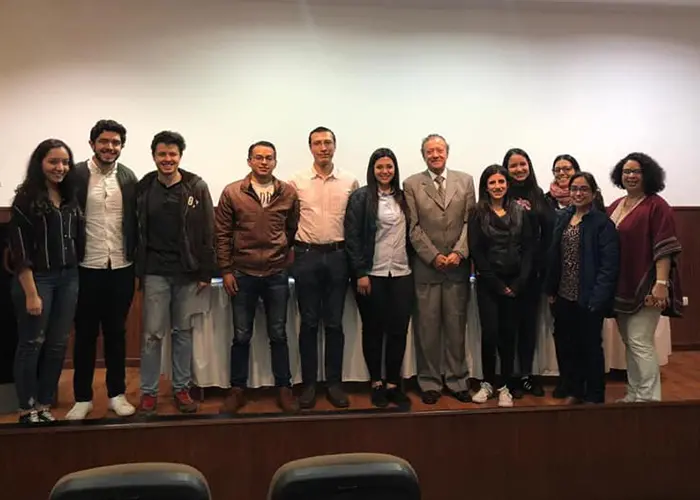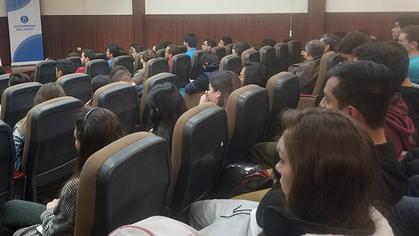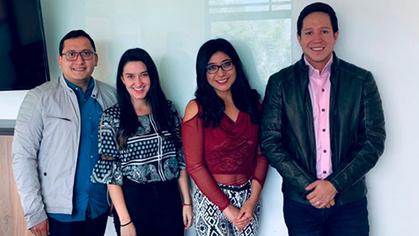Interview with Juan de Dios Alvarado about the future of Food Engineering

Juan de Dios Alvarado, university professor-researcher for 43 years at the Technical University of Ambato, visited the University of Azuay where he taught a course-workshop 9 and 10 from May 8h00 to 12h00 and from 14h00 to 18h00 at the School of Engineering in Food of the Faculty of Science and Technology.
During his stay in Cuenca, Dr. Alvarado spoke with the correspondents of the Universidad del Azuay about the nature of the course he taught, his impression of the students he attended and the differences between this career and gastronomy.
How was your visit to the University of Azuay?
The students of the cycle of eighth cycle of the School of Food Engineering contacted me and asked me if I could come to give some lectures.
I accepted with pleasure, but I told them that, more than a conference, perhaps a short course was much more beneficial for everyone.
So we reached an agreement and then I came to participate the two days with a course on physical properties of food and calculation of processes in food.
In addition, at night they had to do a data treatment that we saw in the laboratory in the afternoon, because it was a course-workshop.
What has been your impression of the Food Engineering students of the UDA?
It has been very pleasant; something that characterizes youth is that sincerity, that desire to learn, that desire to excel. And that really makes those of us who love the university understand their why and with these young people I have felt that, that is, I have felt much younger and very happy.
I think that an idea that they shared with me, and that I had the opportunity to know, was the possibility of creating a postgraduate degree in relation to food processing. I think it is the right way, that is, Ecuador needs fourth level professionals to boost their development.
Beyond third-level engineer training, which is very useful especially for industries, the technological part requires people to move forward with the construction of equipment with food safety, and for that research is needed and, for that reason, the need for the fourth level.
What is, in your opinion, the future of this race?
The career in Food Engineering has a big future, we can never forget that many of the countries of South America are imminently agricultural countries.
The oil will eventually end. But what will never end will be agriculture and livestock. There will always be a need for food and with the increase of the population a greater quantity is required.
That is a foundation that makes Food Engineering have a great future at all levels. Let's go a little further, many of those foods are going to have the need to be preserved and that's why the food industry appears.
At present, one of the strongest sectors of the Ecuadorian industry is the food sector such as tuna, shrimp, bananas, coffee, cocoa, among others; food that will increasingly need people who can industrialize them to preserve them and market them better. There is the work of food engineers.
There are people who confuse this race with gastronomy. What is the difference between the two?
Oh, total.
Gastronomy is a discipline that has to do with the preparation or preparation of food, while Food Engineering has to do with the equipment that transforms food.
The difference is radical, both professions are very worthy, but a very different thing is to prepare food that build a plate exchanger that allows you to pasteurize milk in quantities of mass consumption.
Then the engineer is the one who has to establish the characteristics and conditions of the equipment to reach such temperatures for a certain time and thus be able to pasteurize the milk.
The fundamental difference is that in Food Engineering it is transformed, industrialized, while in gastronomy it is used for direct feeding.



